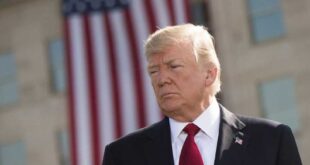The Recent missile launched by the Iran-aligned Houthis that targeted and reached central Israel is one of the crucial events, which weight cannot be measured by the lack of victims only. The recently fired surface-to-surface missile, launched from Yemen and capable of reaching the centre of the Israeli territory is indicative of yet another ominous development in the Middle Eastern security environment. The Houthis which had been fighting local battles within Yemen or launching attacks on neighbours including Saudi Arabia and UAE have now extended their operations and have attacked Israel in this new twist to the conflict. There was no loss of lives during the incident although the missile launched landed in an uninhabited area but the consequence is widespread.
This strike shows the capabilities of the Houthis in the technical aspect particularly in designing and launching long –range missiles. It has for years been supplied with military and logistical assistance by Iran, which has, moreover, been involved in the process of constructing the weapon stockpile of Hamas. The missile launch against Israel has exposed the fact that Iran has not confined the use of proxy forces to confined or regional skirmishes but these forces are part of a large plan to disorient the Iranian allies in unconventional ways. Houthis’ control zone of operation, with Tehran’s backing, is now directly reaching Israel and this takes the Iranian-Israeli conflict to a different level outside the more familiar theatres of Lebanon, Syria, or Iraq.
What increases the significance of this development is the fact that this was not a multiple missile strike of the numerous missiles that can be launched, but one, carefully aimed salvo. Even within Israel, state-of-art air defence systems that few nations possess were probably used to confront the incoming missile and yet it landed within Israel territory. This leads to the following questions as regards the readiness of Israel security apparatus in handling long-distance threats from the unexpected quarters such as Yemen. The Houthis, who have historically not been regarded as a direct danger to the Israelis, increased the list of opponents to be evaluated by Israel’s strategists, military and political ones.
Iran’s credentials are very discernible in this particular strike. It has always considered Israel as its main foe in the Middle East and now it carries on probing Israel’s strength and determination through its proxies. Supplying the Houthis with missile technology is not so surprising for Iran, as it effectively prevents Israel’s military from focusing on the actual Iranian threat. This is not very encouraging for Israel because Iran does not necessarily have to confront it directly; by arming organizations such as the Houthis, it declines the Israeli defence establishment’s trouble shooters into a many-fronted war. In particular, Iran aims at proving that it has a capacity to destabilize not only its direct neighbours but the countries of other regions as well by using its Non-State Actors to this end.
For Israel, this missile attack is indicative of a newly emerging weakness. Even though Israel laid enormous resources into such projects like Iron Dome, David’s Sling, Arrow etc., these systems have been mainly developed to counter threats posed by Hamas in Gaza, Hezbollah in Lebanon or more recently Iran affiliated militias in Syria. Situation that was introduced by a missile from Yemen extends the defensive line of Israel and puts it before a problem coming from an entirely different direction. One cannot underestimate the psychological impact that such a strike would create in Israel even if no number of people have been killed. It, therefore, supports the belief, which has persistently been postulated, that any part of Israel is susceptible to attack by its counterparts.
This strike also has implications to the region at large. It depicts the intensification of the conflict between Iran and Saudi Arabia through proxy by using Yemen as the theatre. Saudi Arabia and the UAE have been the main targets of the Houthi’s missile and drone attacks for quite some time now, but including Israel in this conflict may change things. That Houthis can reach Israel will make Gulf States to change their strategies as well as affiliations in a way. Now that some of the nations from the Gulf region which normalized their relations with Israel earlier are confronting Iran in some form or the other, the Abraham Accords may assume a renewed value.
Such event may lead to even more integration between Israel and the Gulf States. The Houthis’ capability of attacking deep within the Israeli territory may make it possible for Saudi Arabia and the UAE to forge a better cooperation with Israel in the military and intelligence domains. It may: Put an end to the conflict of interests between the US and Iran and take the region to a better chance of coming up with more coordinated way of handling the Middle Eastern power that has caused controversy for years. Without realising it, the Houthis may have spurred a new vortex of strategic insurrection whereby several disparate actors come together with a common enemy.
It is from this point that one sees the consequences of such a strike not only affecting Israel and the Gulf States. In a global perspective, the attack marks a growing trend of non-state actors’ involvement in the security agenda of the various nations. These hitherto local insurgent groups such as the Houthis have now been able to transform the global system. Their capacity to embark on long range bombardment brings an additional factor into an already volatile political environment thus complicating diplomatic means of solving a conflict. As these non-state actors become more complex, they can face state militaries and defence frameworks, which puts another layer of volatility to the world’s security.
It will be observed that how much Israel reacts in the first moments or weeks after the missile strike. It remains to be determined whether it will decide to take its vengeance directly on the Houthis or indirectly on Iran. Yet, this event may prove to be the turning point that forces a change regarding Israel’s defence conception. It will probably have to think of further scenarios for engaging unconventional foes using lengthy strikes. This is not just a military issue but also a political one which the Israeli should consider as they engage in the escalation and relate to other players within the Middle East and outside the region.
Thus, the Houthis’ missile strike on central Israel is about warning. It means raising capacities of non-state actors in plunging long-range operations and raising shares of Iran in melding conflicts in region. To Israel and its friends this is a rude wakeup call that the war front it expanding and the dangers are changing. The future of Middle East security will therefore be determined by how better these nations fit into this new world order where it becomes very hard to distinguish between state and non-state actors, regional and global conflicts.
 Geostrategic Media Political Commentary, Analysis, Security, Defense
Geostrategic Media Political Commentary, Analysis, Security, Defense





